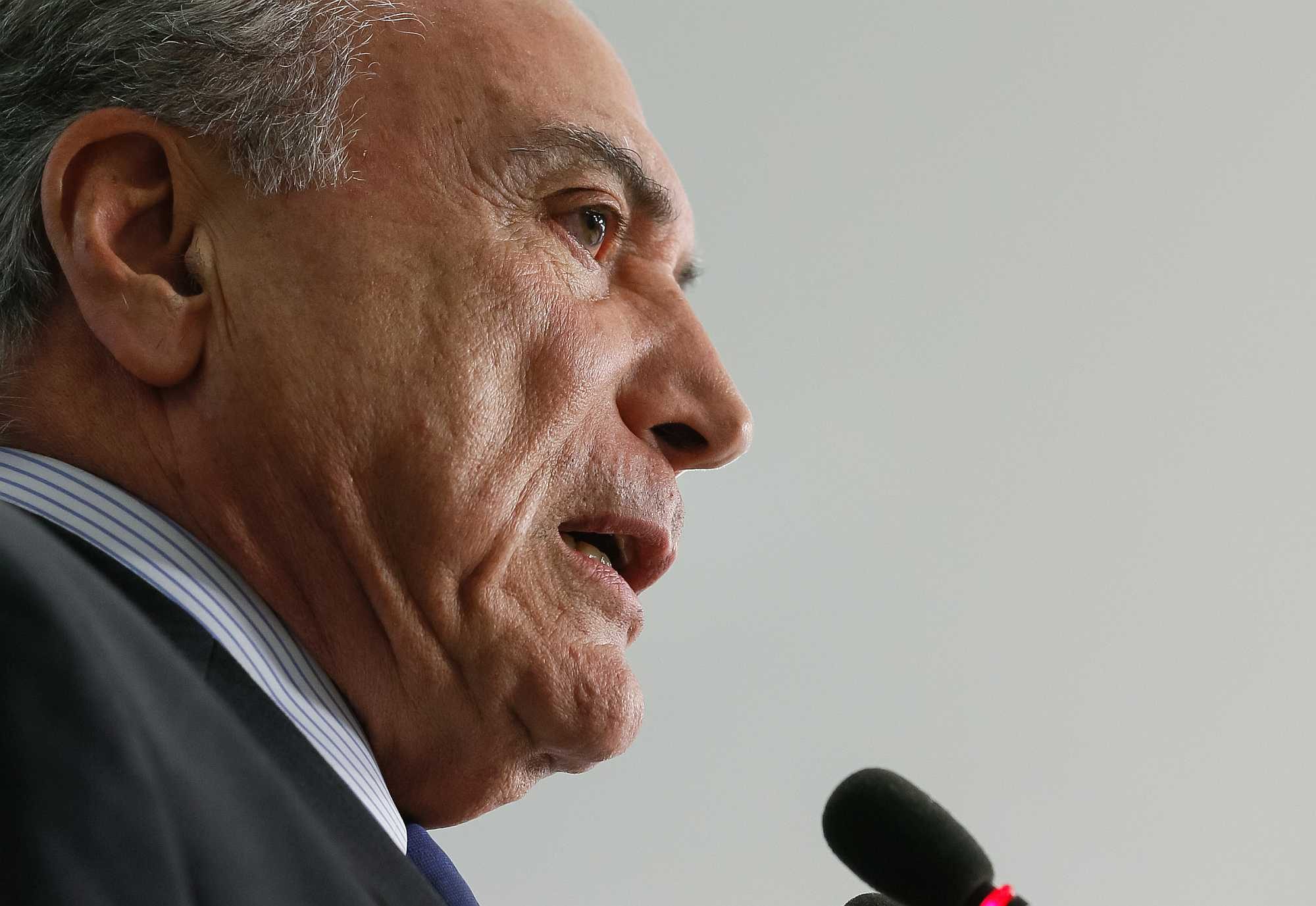Brazilian President Michel Temer’s popularity has plummeted down to just 3 percent, according to a new poll published Thursday.
The president, embroiled in a number of corruption charges, is the most unpopular Brazilian leader since the country’s dictatorship, which lasted from 1964 to 1985.
The results from the Brazilian Institute of Public Opinion and Statistics (IBOPE) poll are based on surveys with some 2,000 residents in 126 Brazilian cities, taken between September 15 and 20.
The poll found that those who see Temer’s management as “bad” or “very bad” has jumped to 77 percent from 70 percent in July. The survey also found that no female respondent had rated his administration as “very good.”
Only 3% of the population think Temer’s administration is good or great. The survey reports that 16% of the people find the government’s job regular and 3% said they don’t know or didn’t answer the question.
The good/great evaluation has fallen to the lowest rate since the end of José Sarney’s administration. In July 1989, former Brazilian president had the approval of 7% of the population.
According to the document, this is the fourth consecutive quarter of worsening in government’s approval. From September 2016 to the same month this year, good/great evaluation has had successive quarterly downfalls: 13%, 10%, 5% and the present 3%. On the opposite way, bad/very bad has risen – 46%, 55%, 70% and the present 77%.
In the previous query, the government was evaluated as good or great by 5%, as regular by 21% and as bad or very bad by 70%.
Confidence
About Temer’s governing style, the approval has fallen from 11% (July) to 7% this month. Disapproval, in turn, has risen from 83% to 89% in the same period.
The confidence in the president has also had a downfall. The group of respondents that trust Michel Temer has fallen from 10% in July to 6% in September. The percentage of people who said they don’t trust the president has risen from 87% to 92% in the same period.
Renato da Fonseca, the executive manager for Research and Competition at CNI ( National Confederation of Industry), which ordered the survey, believes the popularity rates are low at this moment for two reasons.
One of them is the debate in social media about the permission for mineral exploration in a protected area in the Amazon forest. The other reason, in his opinion, is that population has not yet noticed the changes in economy, largely publicized by the government.
Legal Trouble
In the latest charges against him, Temer is accused of paying bribes to keep a jailed politician from testifying. He is also accused of leading a group in Congress that took millions of dollars in bribes from companies seeking state contracts.
Temer defeated the first charge of bribery but may face trial for his involvement in the “Gang of the Lower House.”
Since he was appointed president, Temer has pushed through a series of neoliberal reforms, which have been widely condemned by women’s groups, Indigenous organizations, labor unions and environmental activists.
Indigenous people and social movements gathered in Rio de Janeiro to protest against an auction carried out by Temer’s government to sell their ancestral lands in Minas Gerais to mining companies.
Temer is also allegedly trying to use his influence to save Senator Aécio Neves, a member of Brazilian Social Democracy Party (PSDB) and a principal ally of him.
According to the report, keeping the PSDB in the coalition is essential for Temer’s survival; therefore saving Neves can be efficient for him to ensure partial support of the party.
Senator Neves was caught on negotiating a payment of 2 million reais (about 632,000 dollars) with Joesley Batista, head of the JBS, who unveiled the corruption case and relevant evidences.
Neves had his mandate suspended by the Supreme Court earlier this week because of passive corruption.
tS/ABr

